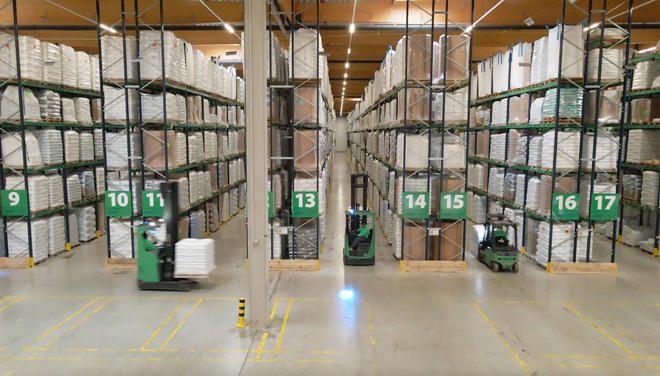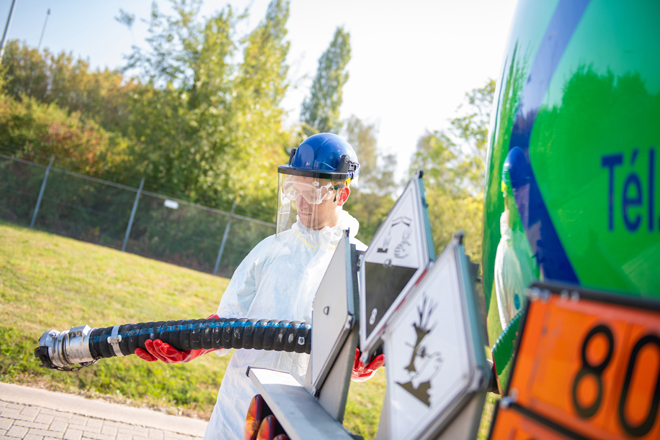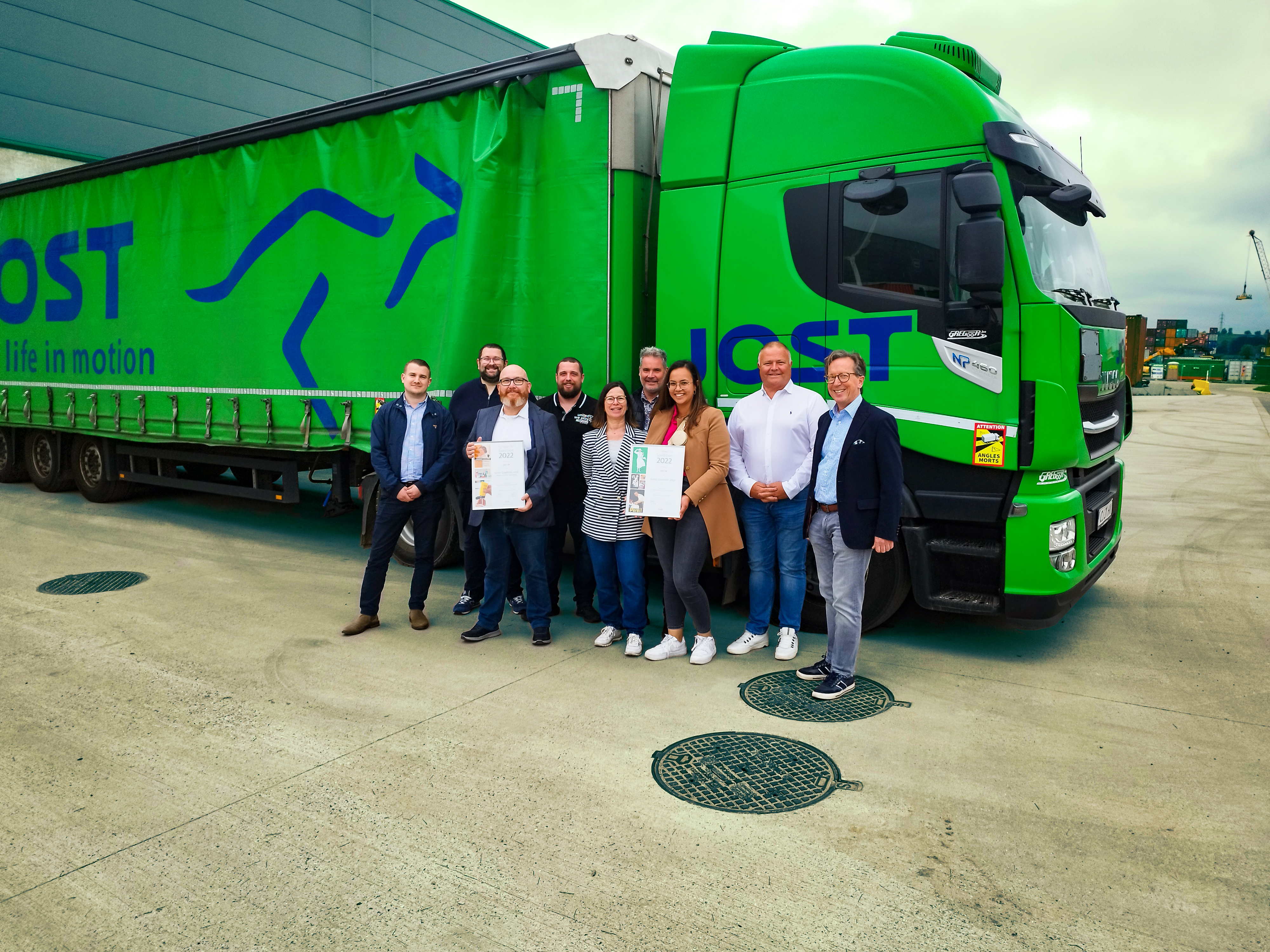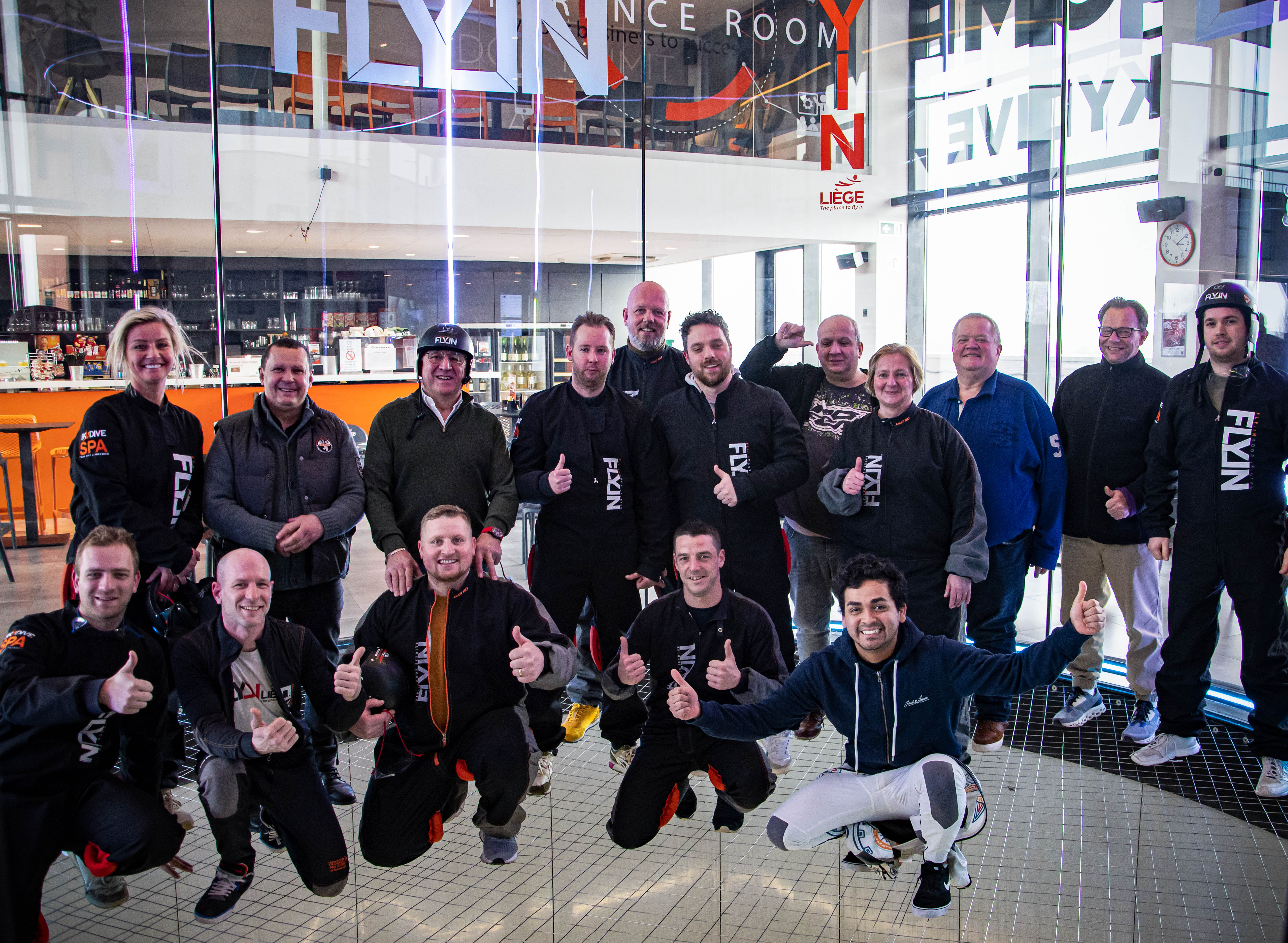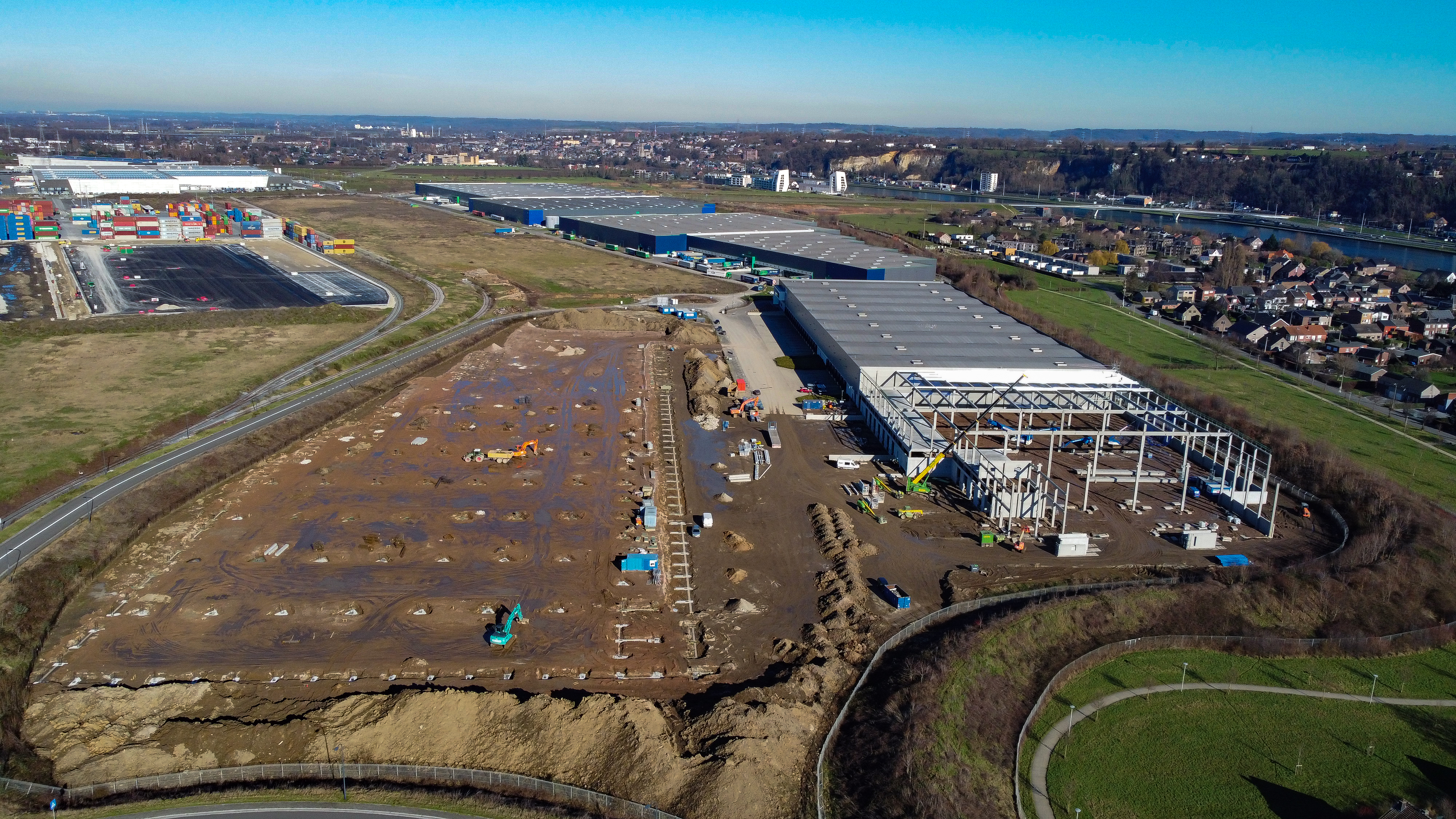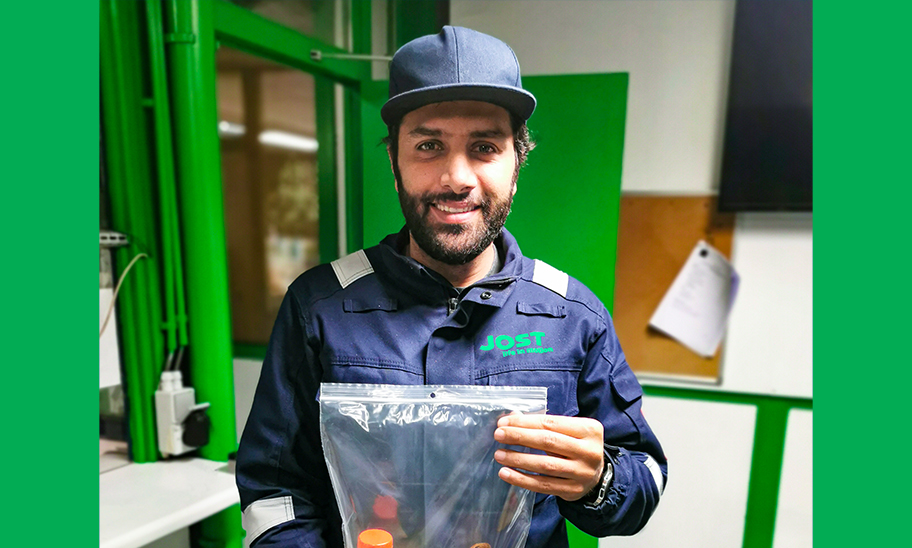What are the main characteristics and importance of a Quality department in a Transport and Logistics company the size of JOST?
It must be said that a Quality department is critical for any company that is focused on being efficient, improving and meeting the expectations of its customers as well as those of its management.
To start with, the quality manager defines, together with the company’s management, a policy to be followed. This policy sets out objectives which can be measured by KPIs. Control processes, audits and statistical analyses are also essential to the continuous assessment of our quality level.
In concrete terms, some of the most significant KPIs that JOST has put in place are those relating to meeting the lead times and on-time delivery requirements for our customers, the reduction of CO2 emissions, as well as the respect of safety rules (PPE, on-site safety, ...).
Upstream of the operational processes and information on specific customer requirements are collected from the sales department and via the CRM.
Our customers also require certifications from our company, which are proof of our ability to operate to the highest degree of professionalism with regard to processes and systems and ensuring that these are properly renewed. JOST, as a service provider, is responsible for ensuring internal and external compliance to legal requirements and operating standards.
JOST also has a list of criteria for selecting and assessing its suppliers in order to find out whether they are certified, and if so, to ensure that they comply with these certifications through regular audits and interviews.
A more specific project is currently underway with our suppliers with regard to the responsible purchasing charter and the ethical charter, in connection with our CSR.
Finally, as part of our work, we manage quality-related customer requests and complaints, if any, and annually compare them with our Group Quality policy to ensure that our targets and operational efficiency are in line with what our customers expect and require. This is done in close collaboration with the prevention advisers and environmental and hygiene managers.
The different certifications, such as ISO 9001 and 14.0001, how to obtain them? What do they consist of, and what do they bring to a company?
There are numerous certifications: ISO, IFS, FCA, SQAS, Covid-19...
In order to obtain these certifications, we must ensure that our organization meets these international requirements on every point, and if a deviation is found, discuss the adjustments to be made with the managers and staff concerned. After implementation, internal audits are carried out to assess the degree of efficiency after the adjustments. The next step is to undergo audits with representatives of the relevant external bodies, who will ensure that we meet the established criteria. Once these certifications have been granted, we accompany the follow-up audits each year to ensure that the requirements of the certifications we have been awarded are still being met.
These certifications are essential to validate the work carried out internally with all our colleagues and to give our customers the certainty that we check our processes and that we are continuously improving and enhancing our performance and quality levels.
To explain in concrete terms what these certifications correspond to, ISO 9001 is an internationally-recognized standard that brings together in a single document all the expertise and know-how of the last few decades in the field of quality management. Companies describe, analyze, measure and continuously improve their processes.
Our entire organization is working according to this certification.
ISO 14.001 is a set of requirements that a company's environmental management system must meet.
JOST is also IFS-certified. IFS certification demonstrates that the certified company has implemented appropriate processes to guarantee food and product safety, and that these processes take into account and apply customer specifications. We are involved in the logistics and warehousing part.
Products that meet the European BIO (ORGANIC) label are subject to controls and that the European regulations regarding organic farming are respected. JOST gives this type of customer the certainty that the logistics portion carried out in our warehouses is fully compliant with these requirements. This work is carried out in active partnership with customers.
We also have FCA certification. The Standard Feed Chain Alliance (formerly GMP Feed) is a reliable quality standard developed by and for the feed industry. It sets requirements for the production, processing, marketing, storage and transport of feed. JOST is involved in the transportation part.
The chemical industries make extensive use of third-party logistics services to store, handle and transport chemicals.
These chemical companies therefore need the assurance that these operations are carried out safely and in a manner that respects the environment and the health and safety of our employees and the public.
The solution proposed to this operation is the SQAS standard. JOST carries out the SQAS self-assessment for its transportation of dangerous goods. This standard provides our customers and partners with information on safety, quality, environmental and health aspects. SQAS (Safety and Quality Assessment Systems) is a tool for uniformly assessing the quality, safety and environmental management systems of logistics service providers.
JOST also holds a COP certification, which is the quality management system concerning the conformity of production, i.e.: initial assessment, measures relating to product conformity and provisions for continuous verification. Our workshops carry out the conversion of some of our vehicles. We are therefore required to comply with the rules that manufacturers must apply, and in particular to apply adequate procedures to ensure that our "production" complies with the approved types.
What are the quality control tools?
Records of the checks performed, KPIs, processes and procedures, instructions, analyzes, efficiency assessments, statistics and audits are all control tools that we put in place to ensure that the defined objectives are being respected and met.
In particular, KPIs must be relevant and measurable. It must be possible to maintain a link between what is expressed in the quality policy and what is going to be achieved.
We have wonderful IT tools, developed in-house by our IT teams, enabling us to extract everything that has been done or will be done for a client. We can then, for example, see directly whether, on all deliveries made to a customer, on-time delivery requirements have been met.
Our internal auditors, who undergo external training to keep them at the cutting edge of expertise, go into the field to ensure that procedures and instructions are properly followed and that our organization complies with the various international standards.
What are the main customer demands on a company that monitors its quality?
Customers demand a consistently high level of service quality from their suppliers. They also expect that if a problem arises, it will be solved as quickly as possible and that it will not re-occur, which means that we will continuously improve. As soon as a non-conformity is detected, we will analyze it. We must identify the cause of the problem and implement all collective and preventive actions with the people concerned so that the non-compliance is rectified and does not recur. We have set ourselves the objective of responding within two hours at the most, even though the entire process can obviously take longer.
Furthermore, we have regular meetings with our clients to discuss how we can improve our services and build ever more efficient partnerships.
It is therefore truly proactive, open and transparent communication that is being put in place to ensure our operational experience and efficiency.
What is the link between quality and innovation?
If we start from the premise that a company is often confronted with new points of attention, quality and innovation can meet those points. It is always necessary to be creative, flexible and rigorous in dealing with these points before they turn into incidents. Where necessary, corrections must also be made with a perfect balance between innovation and process or even systems implementation and therefore take the time to innovate.
The advantage of a company like JOST, where we are constantly looking to stay one step ahead, is that we can offer solutions upstream, prevent risks and therefore innovate.
How to be a good quality representative?
The first thing you need to do to be a good quality representative is to know the company you work for like the back of your hand.
Then, you have to be meticulous, rigorous, methodical and above all have good analytical skills.
The biggest challenge for a quality manager is to find the most suitable processes and to optimize flows. Clear and interconnected processes and procedures, supported by systems, are very important. This becomes essential when the company is large or when dealing with a group of companies.
In any organization, there are weaknesses and risks being identified. It is up to us to detect and implement the best solution, through analysis, to prevent these weaknesses from becoming a problem.
Finally, one of the most important skills for a quality manager is his or her ability to work with a wide variety of profiles and to get them to work together with a common goal of continuous improvement.

